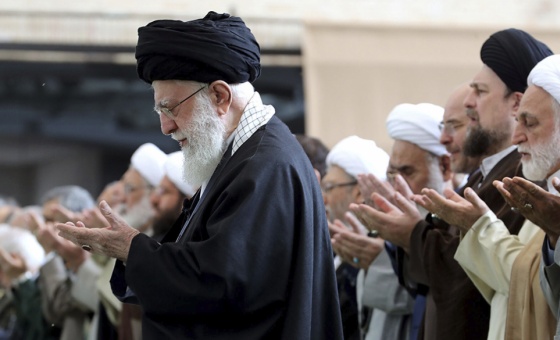This is the last article you can read this month
You can read more article this month
You can read more articles this month
Sorry your limit is up for this month
Reset on:
Please help support the Morning Star by subscribing here
This weekend marks the 150th anniversary of the founding assembly of the International Workingmen’s Association (the First International).
It’s an occasion for serious celebration by socialists, for even in the face of political setbacks over recent decades, the seeds of today’s international working-class and progressive movements were planted by the First International.
The noisy gathering on September 28 1864 of some 2,000 participants packed into London’s then newly built and now long disappeared St Martin’s Hall in Long Acre, elected a committee mainly from English trade unionists.
The meeting might have led to nothing of historic significance or long duration.
In fact, the International was to be a living political force for the next eight years — until 1872, when uncontainable levels of internal dissent and the withdrawal of “moderate” leaders largely ended its useful life.
The International was the first working-class organisation to make a decisive impact on European politics. It was, moreover, the first political organisation in which trade unions participated as affiliated bodies.
The labour movement in Britain and Europe had been in a relatively sleepy condition after the highs of the revolutionary upheavals of the 1840s, including publication of the Communist Manifesto, which were followed by defeats everywhere across Europe.
But in the early 1860s, political militancy was rising again, stimulated by turbulent events in Italy, Poland and the United States.
Between 1859 and 1862 industrial struggles among London’s building workers increased working-class confidence and awareness, and in doing so prompted the setting up, by craft union men, of the London Trades Council in 1860.
The case for strengthening unity across international borders was simultaneously gaining adherents. Trade unionists, among whom
some were inclined to Liberalism and some were old Chartists, were actively led by George Odger, a shoemaker, and by William Cremer, leader of the Amalgamated Society of Carpenters and Joiners.
A French contribution to the International’s formation was led by the engraver Henri Tolain, whose personal loyalty to the movement succumbed to defection to French reaction during the revolutionary Paris Commune in 1871.
The commitment of another leading Frenchman, the bookbinder Eugene Varlin, on the other hand, was never in doubt.
While Odger and Cremer were key to the establishment of the International at this historic meeting in September 1864, Dr Karl Marx (who might have otherwise have spent the time working on the first volume of Capital) was a quiet presence on the platform.
He had received a last-minute, after-thought invitation from Cremer, and had not been previously involved. But he was not to remain passive for long.
The outlook of the men of the London Trades Council who created the International in conjunction with European comrades has been encapsulated neatly by Rajani Palme Dutt — editor of this paper’s predecessor, the Daily Worker between 1936-8 — in his book The Internationale.
It was “mainly that of reformist trade unionism; they were not revolutionaries; they attached importance to the International as a means of promoting international trade-union solidarity at the same time as they supported progressive democratic movements.”
This represented a major advance from the previous tendency to limit action to issues of pay and working hours.
The various speeches at the St Martin’s Hall meeting were spiced by a musical contribution from the German workers’ choir and culminated in a specific proposal from trade unionists George Wheeler and William Dell.
This was the decisive recommendation. It was for the formation of an international association and for the immediate election of a general committee to draw up rules. The proposal was adopted.
Thirty four men were elected, overwhelmingly English, and nearly half of the English members were building trade workers. The seven non-English committee members comprised two Italians, three French and two Germans — of whom one was Dr Marx.
Time was not now wasted. A week after the foundation meeting, the committee elected Odger as president and Cremer — on Marx’s proposal — as secretary.
In the following weeks a strangely disorganised draft statement of the association’s principles ran into controversy while a draft of rules for the association ran on for ever.
It was in this situation that Dr Marx rode to the rescue — or rather to the consignment to oblivion — of both documents.
Marx applied shrewd administrative tactics which enabled him to rewrite both the rules (reducing their number to a digestible 10) and to pen an Address to the Working Classes, which he adapted sensitively to the realities of the political conditions of the time.
So it was that the International’s foundation documents took on a firmly socialist colour.
While calls for revolutionary action in the Communist Manifesto were not revived, the preamble to the rules contained an unequivocal declaration that “the economical emancipation of the working class is therefore the great end to which every political movement ought to be subordinate as a means.”
Marx’s rewrites were, with slight change, upheld by the general committee, soon renamed the general council.
Much agitation and many meetings at the general council’s inelegant base in Soho’s Greek Street lay ahead. The general council supported industrial action by trade unions in Britain and abroad, facilitating, for example, financial support for striking Paris bronze workers.
The number of affiliated trade unions grew rapidly, and the British affiliated membership in 1869 was reported to be around 95,000.
The role of the International — and of Marx — as mediator between London and the continent, became rock-solid.
Conferences were held in 1865, in Geneva in 1866 and later at Lausanne, Brussels, Basle and The Hague as well as in London.
Over eight years internationalism in action was powerfully demonstrated. In November 1864 the general council adopted a congratulatory message to Abraham Lincoln on his re-election as US president during the civil war against the “counter-revolution” in the south.
In 1866 the general council denounced the war between Prussia and Austria as a quarrel between two despots. In 1867 — the year in which Capital was finished and published in German — Marx and the general council took up the question of
Ireland’s subjection to, and exploitation by, Britain.
In 1868 the Brussels congress, taking place under the shadow of impending war between France and Germany, called for working-class action to prevent it.
The council also launched a campaign for limiting the working day to eight hours, and the Brussels and Basle conferences passed resolutions for land nationalisation (where are such calls heard today?)
In Britain some general council members energised the campaign for extending the vote to all adult males by taking part, together with middle-class radicals, in the creation in April 1865 of the Reform League and in its subsequent activities.
Four days after the outbreak of the Franco-Prussian war in 1870, the general council issued an anti-war manifesto, drafted by Marx, who had been for some years rather more central than his official title of corresponding secretary for Germany suggested.
When the Paris Commune, the first proletarian democracy in action, was established with German armies outside Paris in the spring of 1871, 17 of its 92 members were also members of the International.
In the Commune’s bloody overthrow by French reaction, 30,000 Communards (one of whom was Eugene Varlin) were shot, and in most European countries the International, though hardly responsible for the Commune, was outlawed.
To its great credit the general council approved Marx’s end-game address, The Civil War in France, in Dutt’s words “the burning panegyric of the Commune and indictment of the counter-revolution.”
Reformist union leaders in Britain withdrew from the International and on Marx’s initiative, in the unpromising conditions then present, the general council’s seat was transferred to New York. The association was formally dissolved in 1876.
For the Second International, the world had to wait until 1889. For the Third, until 1919 — each survived a quarter century and were dissolved due to world war, but a mighty precedent of working-class internationalism in action had been set.
Today, we have no International aside from the pale imitation of one created by the social-democratic parties in 1951, the deceptively named Socialist International.
Still, we have much internationalism, and we have before us also the unfinished business defined in the Marx-authored 1864 Preamble — “the economical emancipation of the working class.”








